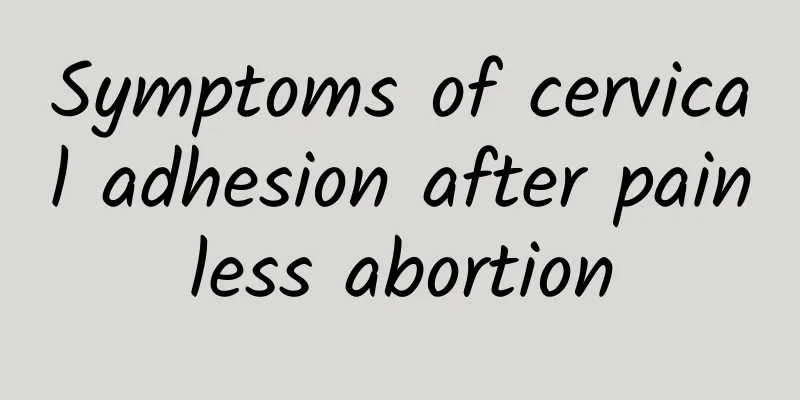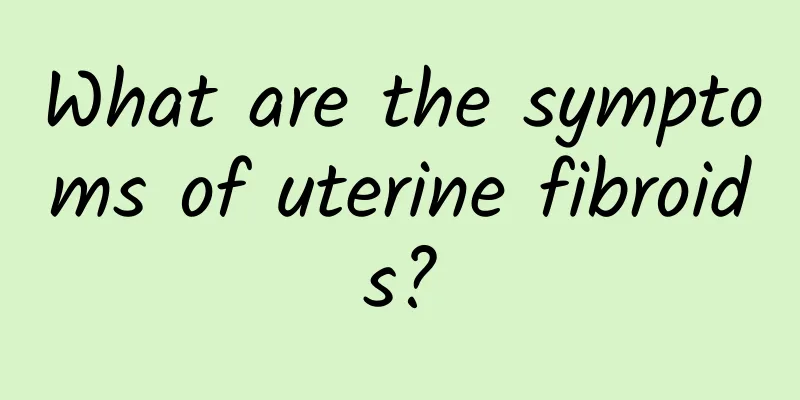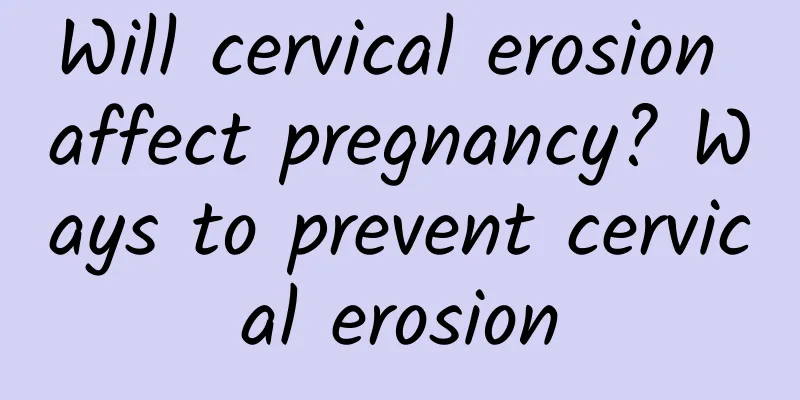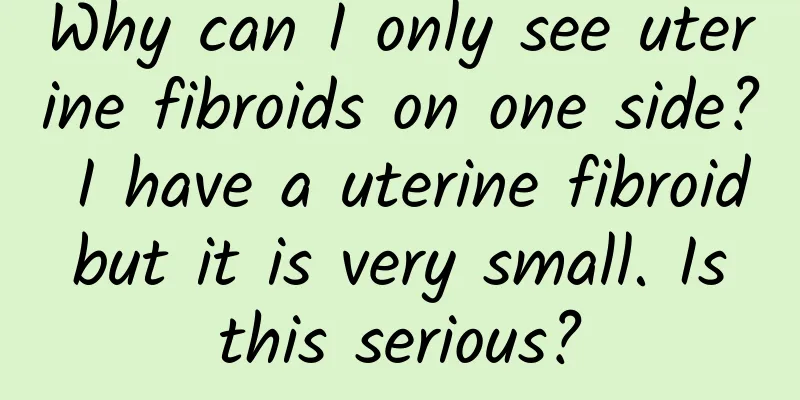Symptoms of cervical adhesion after painless abortion

|
If cervical adhesions occur after painless abortion, common symptoms include decreased or absent menstruation, lower abdominal pain, infertility, etc. If you have the above symptoms, it is recommended to see a doctor as soon as possible to avoid delaying treatment and causing more serious consequences. Cervical adhesions are mainly caused by surgical damage to cervical tissue, which leads to fibrotic healing and partial or complete occlusion of the cervix. Common symptoms are abnormal menstruation, among which reduced menstrual volume is the earliest signal. Some patients may even experience amenorrhea. This is because the cervical canal is blocked and menstrual blood in the uterus cannot be discharged smoothly, which may be accompanied by periodic lower abdominal pain. Infertility is also an important signal of cervical adhesions, because the cervical canal is blocked and the combination of sperm and egg is affected. Some women may experience compression symptoms such as periodic frequent urination and urgency, which is due to increased pelvic pressure caused by uterine blood accumulation. If cervical adhesions are suspected, common examination methods include ultrasound examination, hysteroscopy, etc., which can clarify the degree and location of adhesions. The treatment method for cervical adhesions can be selected according to the specific situation. For example, mild adhesions can be treated with hysteroscopic separation to restore the adhesion site to normal; if it is moderate to severe adhesions, it may be necessary to place an intrauterine contraceptive device or balloon in the uterine cavity after surgery to prevent re-adhesion; severe adhesions may require a combination of drug treatment, such as hormonal drugs to restore the endometrium. Postoperative infection should be avoided. You can take antibiotics prescribed by your doctor to prevent inflammation, but do not take medication on your own. In order to prevent cervical adhesions after painless abortion, regular follow-up examinations are recommended after surgery, especially ultrasound examinations 1 month after surgery to assess the recovery of the uterus. Maintaining good living habits after surgery can help reduce the occurrence of subsequent problems. It is recommended to avoid early sexual intercourse after surgery, at least one month apart, and pay attention to personal hygiene, change underwear frequently, keep the lower body clean, and avoid infection. Eat more foods rich in vitamins C and E, such as oranges, spinach, nuts, etc., to promote tissue repair. If necessary, you can take health supplements under the doctor's advice to promote healing. If you find symptoms such as abnormal menstruation, abdominal pain, etc., you should go to the obstetrics and gynecology department as soon as possible to ensure long-term maintenance of reproductive health. |
<<: How are uterine cysts formed? What are the symptoms?
>>: Can uterine cysts cause peritonitis?
Recommend
What should you pay attention to after abortion? Pay attention to these 3 points
Abortion is a way for women to deal with the inab...
How can women prevent the recurrence of cervical erosion? These cervical erosion prevention measures should not be relaxed
In life, gynecological inflammation is not scary....
What should I do if my period comes 3 to 5 days early every month?
What should I do if my period comes 3 to 5 days e...
What is the cause of recurrence of cervicitis?
What is the cause of recurrence of cervicitis? Gy...
Why do I have irregular menstruation after an abortion?
Many women will experience irregular menstruation...
How long does it take to get pregnant after surgery for hyperprolactinemia
Many people know that suffering from hyperprolact...
Which abortion hospital is best in Beijing?
The rise and development of abortion hospitals in...
How to completely cure pelvic peritonitis
Many women are very distressed when they suffer f...
Clinical examination methods of cervical hypertrophy
It is very important for patients to check for ce...
Why does adenomyosis cause early menstruation?
Why does adenomyosis cause early menstruation? 1....
Women often feel tired and anxious? Fear of not eating enough meat
In recent years, surveys on women have found that...
Preventing osteoporosis requires more than just calcium! Nutritionist Hu Ci'en reveals: 3 nutrients to maintain bone health
Among Chinese women aged 65 and above, one in fou...
Mechanism of dysfunctional uterine bleeding caused by sex hormone secretion disorder
The normal menstrual cycle is a biological clock ...
So warm! Drink the mature red-feathered chicken soup
The autumnal equinox has passed and the weather i...
What are the specific classifications of ovarian cysts?
I don’t know if most female friends know that ova...









